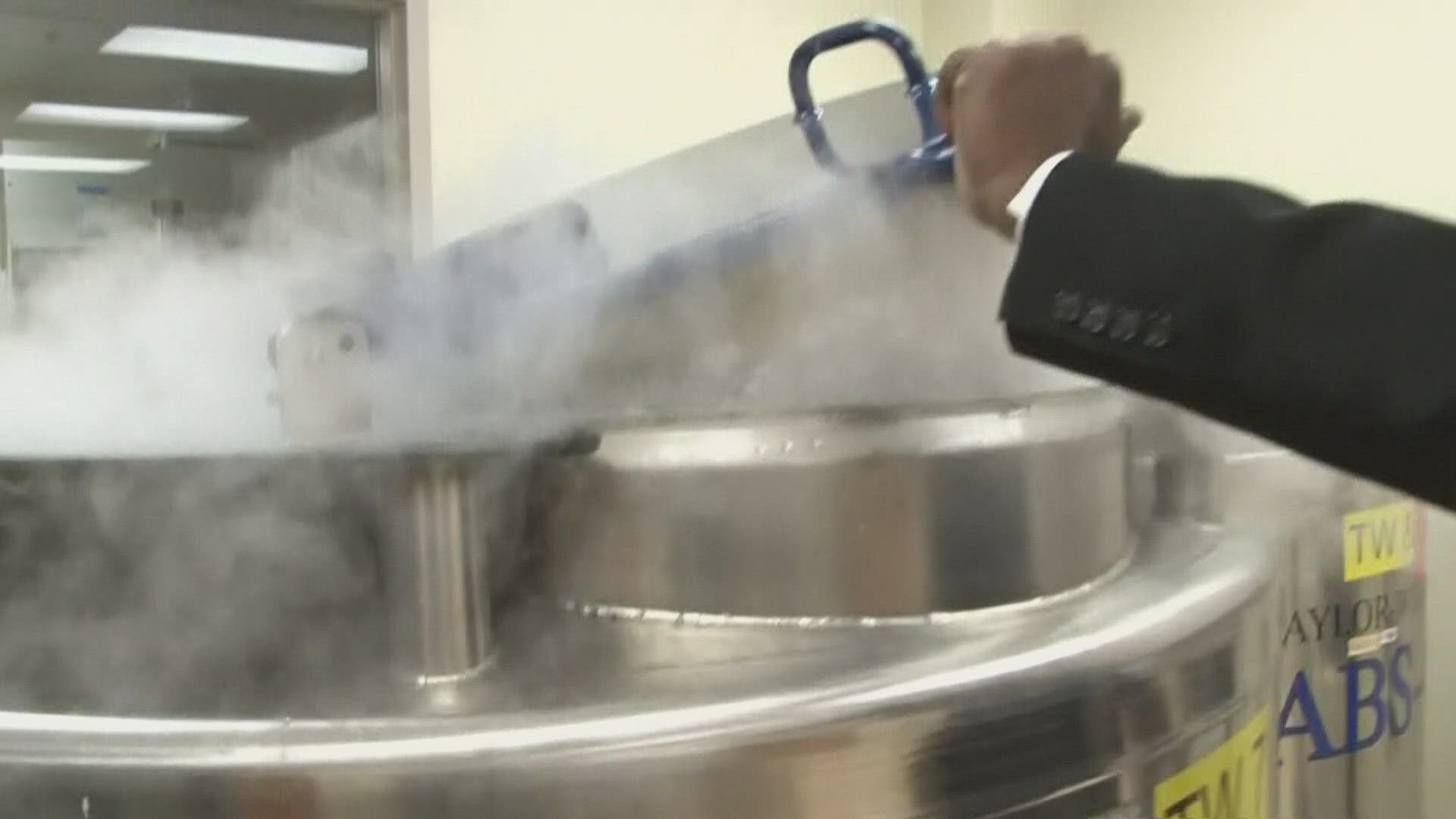JACKSONVILLE, Fla. — Lawmakers in Alabama passed a bill Wednesday night that would protect fertility clinics and doctors following the controversial state supreme court ruling.
The Alabama Supreme Court ruled embryos could be considered children in wrongful death lawsuits.
The ruling halted procedures at IVF clinics for several weeks in Alabama and sparked concern of similar rulings across the country. Amanda Fernandez lives in Jacksonville and has been closely watching the news coming out of Alabama.
“I was honestly just terrified that something like that could happen here in Florida," Fernandez explained.
Fernandez has known she would have difficulty getting pregnant since she was diagnosed with PCOS at the age of 16. But in 2022, she and her husband welcomed their baby boy.
"It took us about a year of fertility treatment, and we did IUI and IVF. We had one failed round of IVF, and then one successful round of IVF. And now we have our son who's 17 months old. So we were very lucky to have him," Fernandez said.
Fernandez said the ruling and uncertainty in Alabama has been stressful and caused anxiety for the future of her embryos in Florida. She said she and her husband are now considering starting their next fertility treatment sooner than planned because of the controversy in Alabama.
“We're not necessarily ready for it at this moment. But now we've reconsidered doing another round of IVF sooner than we would like to just because we don't want to miss out on the opportunity if something like what happened in Alabama would happen in Florida," Fernandez said.
Dr. Samuel Brown is the Medical Director of Brown Fertility in Jacksonville. He said the ruling also made doctors around the First Coast nervous. He worries if more states follow suit, fertility treatments will become more expensive and families will choose not to have children.
"It's really going to be a step back in science, it's going to be a step back in medicine 30 years. It's going to make it really less accessible to these desperate couples and couples trying to have a family," Brown explained.
Brown said the supreme court's ruling is not correct and he urges lawmakers to speak with experts in the field to learn more about the science behind fertility treatments.
"One embryo equaling one child...they just got it wrong. That is just not what happens. It's not reality. For a woman at age 35, at best one out of four, one out of five embryos will be genetically normal and make a baby. The other ones are genetically abnormal, they just don't generally don't make a baby. And if the woman's older, if she's 38, or 40, it could easily be all of her embryos are genetically bad. There's no good test to know which ones are going to be the baby. And that's where the miss is. That's where they're getting it wrong," Brown said.
Fernandez said she is relieved the Alabama state legislature passed protections for IVF clinics. She hopes this will show people how important it is to have access to this type of care.
"My son is my entire world. I couldn't imagine my life without him, and I would not have been able to have him without these treatments. And giving families the opportunity to grow their families that they wouldn't otherwise have, it just means everything," Fernandez said.
Lawmakers in Alabama stressed the newly passed bill is a short-term measure.
Florida Senator Rick Scott and Congresswoman Kat Cammack introduced a resolution in both the U.S. House and U.S. Senate Wednesday expressing their public support for IVF.

